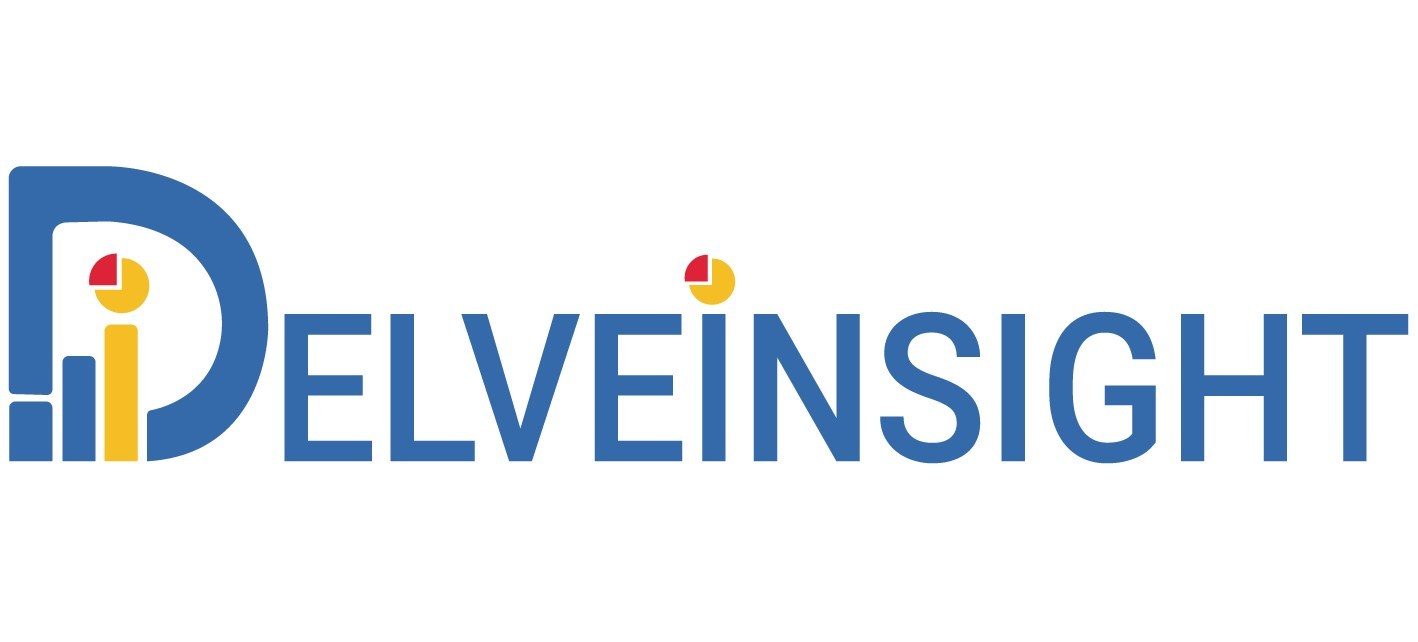The market for complement inhibitors is expected to grow significantly in the coming years. Since the launch of SOLIRIS and ULTOMIRIS, the complement inhibitor market has seen a lot of traction, and many companies are now developing novel complement inhibitors, potentially paralleling the efficacy and safety profile of eculizumab. LAS VEGAS , Aug.
21, 2024 /PRNewswire/ -- DelveInsight's Complement Inhibitors Market Insights report includes a comprehensive understanding of current treatment practices, emerging complement inhibitors, market share of individual therapies, and current and forecasted complement inhibitors market size from 2020 to 2034, segmented into 7MM [ the United States , the EU-4 ( Italy , Spain , France , and Germany ), the United Kingdom , and Japan ]. Key Takeaways from the Complement Inhibitors Market Report As per DelveInsight's analysis, the current market size of complement inhibitors is estimated to be approximately USD 7 billion , in the 7MM in 2023. Leading complement inhibitors companies such as Genentech, Ionis, Roche, AKARI Therapeutics, CARE Pharma, NovelMed Therapeutics, Omeros Corporation, and others are developing novel complement inhibitors that can be available in the complement inhibitors market in the coming years.

Some of the key complement inhibitors include Crovalimab, IONIS-FB-LRx/RG6299, Nomacopan, CAN-106, Ruxoprubart, OMS-906 , and others. In February 2024 , the FDA granted an Orphan Drug Designation (ODD) to ruxoprubart for the treatment of PNH. Discover which therapies are expected to grab the complement inhibitors market share @ Complement Inhibitors Market Report Complement Inhibitors Market Dynamics The complement inhibitors market has been witnessing significant growth, driven by the increasing prevalence of autoimmune and inflammatory diseases.
As research and development in immunology advance , the understanding of the complement system's role in various diseases has deepened, spurring interest in developing inhibitors to manage conditions like atypical hemolytic uremic syndrome (aHUS), paroxysmal nocturnal hemoglobinuria (PNH) , and other complement-mediated disorders. One of the key market dynamics is the rising incidence of rare diseases that are driven by complement system dysregulation. Pharmaceutical companies are increasingly investing in this niche but growing segment, recognizing the potential for high-revenue treatments due to the high cost of rare disease drugs .
For instance, therapies like eculizumab (SOLIRIS) and ravulizumab (ULTOMIRIS) have set a precedent in the market, demonstrating the commercial viability and life-saving potential of complement inhibitors. Additionally, the orphan drug designation granted to many complement inhibitors by regulatory authorities provides incentives such as market exclusivity, further fueling market growth. Technological advancements and innovations in biotechnology have also played a pivotal role in shaping the complement inhibitors market.
The advent of monoclonal antibodies, recombinant proteins, and small molecule inhibitors has broadened the therapeutic arsenal available to clinicians. These advancements not only enhance the efficacy and specificity of treatments but also improve patient outcomes by reducing adverse effects associated with traditional therapies . Furthermore, ongoing clinical trials and pipeline products hold promise for expanding the indications of complement inhibitors, potentially addressing a wider range of diseases and patient populations.
Market dynamics are also influenced by strategic collaborations, mergers, and acquisitions among key industry players. Pharmaceutical companies are keen on enhancing their product portfolios and accelerating the development of novel therapies through strategic alliances. Collaborations with academic institutions and research organizations are crucial for harnessing cutting-edge research and translating it into viable therapeutic options.
Additionally, acquisitions of smaller biotech firms by larger pharmaceutical companies help consolidate market presence and drive innovation by pooling resources and expertise. Despite the promising outlook, the complement inhibitors market faces challenges such as high treatment costs and stringent regulatory frameworks . The high cost of complement inhibitor therapies can limit patient access and pose reimbursement challenges , particularly in developing regions.
Moreover, the regulatory landscape demands rigorous clinical testing and evidence of efficacy and safety, which can prolong the drug development process and increase costs . However, ongoing efforts to streamline regulatory pathways and enhance market access, coupled with the growing awareness of complement-mediated diseases, are expected to mitigate some of these challenges and sustain market growth in the coming years. Complement Inhibitors Treatment Market There are many opportunities to pharmacologically block unwanted complement activation.
For instance, complement inhibitors can be directed at the DAMP or PAMP recognition components of the complement system, specific activation pathways (such as LP, CL, and AP), the C3/C5 convertases, C3 or C5 itself, and their activation effector molecules or complexes (including C3a, C5a, their respective receptors, CR3, and the MAC). Complement inhibition has also shown some efficacy in treating C3-glomerulopathy (C3GN) (including dense deposit disease, DDD), antibody-mediated acute rejection of kidney transplants, severe antiphospholipid syndrome, vasculitis associated with antineutrophil cytoplasmic antibodies (ANCA), myasthenia gravis, and neuromyelitis optica. The current market landscape of complement inhibitors includes C5, C3, Factor-B, and Factor-D inhibitors.
Besides Alexion Pharmaceuticals/AstraZeneca's SOLIRIS and ULTOMIRIS, the market consists of major players, including but not limited to Novartis' FABHALTA (iptacopan), Apellis' pegcetacoplan, Astellas' IZERVAY, and UCBs' ZILBRYSQ (zilucoplan) . VOYDEYA (danicopan) is a pioneering oral Factor D inhibitor. It functions by specifically targeting and inhibiting Factor D, a protein integral to the complement system, which is crucial in enhancing the complement system response.
An uncontrolled activation of this cascade can cause the body to mistakenly attack its own healthy cells. Voydeya has received breakthrough therapy designation from the US FDA and PRIME status from the European Medicines Agency. Additionally, it has been granted orphan drug designation in the US, EU, and Japan for treating PNH.
AstraZeneca/Alexion is also exploring the use of VOYDEYA as a standalone treatment for geographic atrophy in a Phase II clinical trial. Zilucoplan is a once-daily, subcutaneous, self-administered peptide that inhibits complement component 5 (C5). As the only once-daily therapy for generalized myasthenia gravis (gMG) that can be self-administered by adults with anti-AChR antibody-positive gMG, zilucoplan prevents complement-mediated damage to the neuromuscular junction through its specific mechanism.
The FDA approved the drug in October 2023 . Additionally, in September 2023 , the Committee for Medicinal Products for Human Use (CHMP) of the European Medicines Agency (EMA) recommended marketing authorization for zilucoplan in the European Union (EU) as an add-on to standard therapy for treating gMG. EMA granted this authorization in December 2023 .
In the same year, the Japanese Ministry of Health, Labour, and Welfare (MHLW) approved zilucoplan for treating gMG in adults who do not adequately respond to steroids or other immunosuppressants. Learn more about the FDA-approved complement inhibitors @ Complement Inhibitors Drugs Key Emerging Complement Inhibitors and Companies Several key players, including Genentech (Crovalimab), Ionis/Roche (IONIS-FB-LRx/RG6299) , and others, are involved in developing complement inhibitors for various indications. Crovalimab is a new, investigational anti-C5 recycling monoclonal antibody aimed at inhibiting the complement system.
By binding to C5, it blocks the final step of the complement cascade and is recycled within the bloodstream, allowing for rapid and sustained inhibition. Its recycling properties enable low-dose subcutaneous (SC) administration every four weeks. Crovalimab targets a different C5 binding site than current treatments, potentially benefiting those with specific C5 gene mutations who do not respond to existing therapies.
It is also being studied for use in atypical hemolytic uremic syndrome, sickle cell disease, and other complement-mediated diseases. In September 2023 , the FDA accepted the Biologics License Application (BLA) for crovalimab for treating paroxysmal nocturnal hemoglobinuria (PNH). If approved, it will be the first monthly subcutaneous treatment for PNH, allowing for self-administration outside a supervised healthcare setting.
IONIS-FB-LRx , also known as RG6299 , is an antisense oligonucleotide designed to suppress the expression of the complement factor B gene by binding to its mRNA. It is currently being investigated for the treatment of geographic atrophy and IgA nephropathy in a Phase II clinical trial. Other complement inhibitors in the pipeline include Nomacopan: AKARI Therapeutics CAN-106: CARE Pharma Ruxoprubart: NovelMed Therapeutics OMS-906: Omeros Corporation The anticipated launch of these emerging therapies are poised to transform the complement inhibitors market landscape in the coming years.
As these cutting-edge therapies continue to mature and gain regulatory approval, they are expected to reshape the complement inhibitors market landscape, offering new standards of care and unlocking opportunities for medical innovation and economic growth. To know more about complement inhibitors clinical trials, visit @ Complement Inhibitors Treatment Drugs Complement Inhibitors Overview The complement system is an essential part of the innate immune response, consisting of over 50 different plasma and serum proteins. These proteins work together to tag pathogens for destruction and trigger inflammatory responses to combat infections.
Normally, the core components of the complement system, C3, and C5, are present in the bloodstream in inactive forms. They can be activated through three distinct pathways: the classical pathway, the lectin pathway, and the alternative pathway (AP). Each pathway is triggered by specific pathogen- or danger-associated molecular patterns (PAMPs and DAMPs), yet they converge on common processes, leading to the formation of C3 and C5 convertases and ultimately the pathogen-killing terminal pathway.
Disorders such as atypical hemolytic uremic syndrome (aHUS), C3 glomerulopathy, and paroxysmal nocturnal hemoglobinuria are classic examples of complement system dysregulation. Moreover, the list of diseases where complement dysregulation is a confirmed pathological factor continues to grow. Scope of the Complement Inhibitors Market Report Complement Inhibitors Therapeutic Assessment: Complement Inhibitors current marketed and emerging therapies Complement Inhibitors Market Dynamics: Conjoint Analysis of Emerging Complement Inhibitors Drugs Competitive Intelligence Analysis: SWOT analysis and Market entry strategies Unmet Needs, KOL's views, Analyst's views, Complement Inhibitors Market Access and Reimbursement Discover more about complement inhibitors in development @ Complement Inhibitors Clinical Trials Table of Contents Related Reports Myasthenia Gravis Pipeline Myasthenia Gravis Pipeline Insight – 2024 report provides comprehensive insights about the pipeline landscape, pipeline drug profiles, including clinical and non-clinical stage products, and the key myasthenia gravis companies, including Viela Bio , UCB Pharma, Momenta Pharmaceuticals, Sanofi, Regeneron Pharmaceuticals, Ra Pharmaceuticals, Hoffmann-La Roche, Alexion Pharmaceuticals, Catalyst Pharmaceuticals, Harbour BioMed, Novartis, Takeda, DAS Therapeutics, RemeGen, Cartesian Therapeutics, Nanjing IASO Biotherapeutics, Cabaletta Bio, CytoDyn, Ahead Therapeutics, Toleranzia, Rallybio, among others.
Generalized Myasthenia Gravis Pipeline Generalized Myasthenia Gravis Pipeline Insight – 2024 report provides comprehensive insights about the pipeline landscape, pipeline drug profiles, including clinical and non-clinical stage products, and the key generalized myasthenia gravis companies, including Biocon, Cartesian Therapeutics, UCB, Momenta Pharmaceuticals, HanAll Biopharma, Roche, Alexion, Novartis, Takeda, BioMarin, among others. Generalized Myasthenia Gravis Market Generalized Myasthenia Gravis Market Insight, Epidemiology, and Market Forecast – 2032 report delivers an in-depth understanding of the market trends, market drivers, market barriers, and key generalized myasthenia gravis companies, including UCB Biopharma, Argenx-Halozyme Therapeutics, Horizon Therapeutics, Hoffmann-La Roche, Janssen Research & Development, LLC, Immunovant Sciences GmbH, Sanofi, Cartesian Therapeutics, Takeda, DAS Therapeutics, Chugai Pharmaceutical, Inc., Alexion, Regeneron Pharmaceuticals, Ra Pharmaceuticals, Inc.
, among others. Warm Autoimmune Hemolytic Anemia Pipeline Warm Autoimmune Hemolytic Anemia Pipeline Insight – 2024 report provides comprehensive insights about the pipeline landscape, pipeline drug profiles, including clinical and non-clinical stage products, and the key wAIHA companies, including Immunovant Sciences GmbH, Apellis Pharmaceuticals, Inc., Bioverativ, among others.
About DelveInsight DelveInsight is a leading Business Consultant and Market Research firm focused exclusively on life sciences. It supports pharma companies by providing comprehensive end-to-end solutions to improve their performance. Get hassle-free access to all the healthcare and pharma market research reports through our subscription-based platform PharmDelve .
Contact Us Shruti Thakur [email protected] +14699457679 Logo: https://mma.prnewswire.com/media/1082265/3528414/DelveInsight_Logo.
jpg SOURCE DelveInsight Business Research, LLP.


















